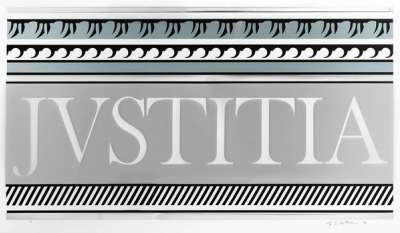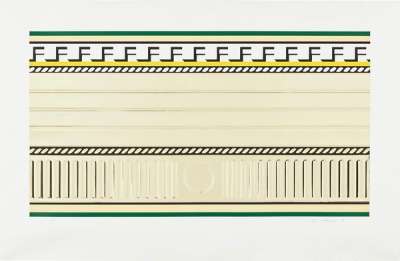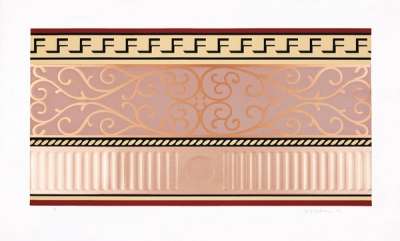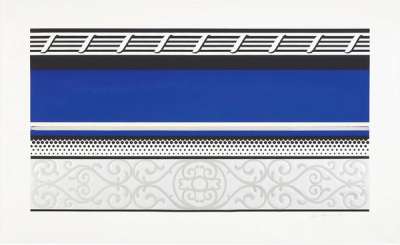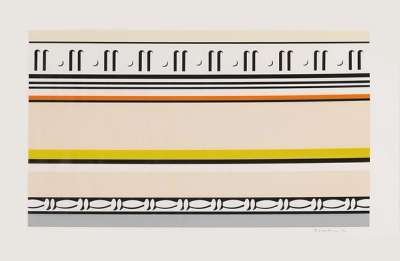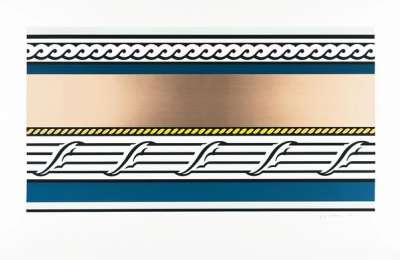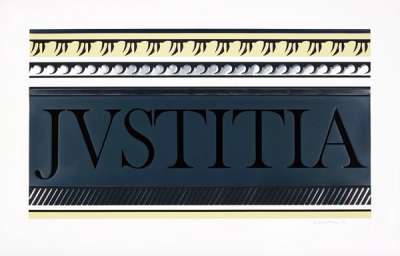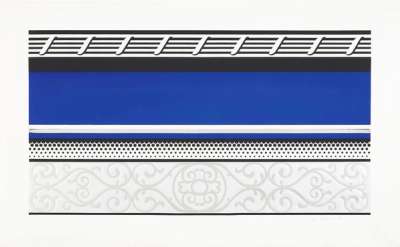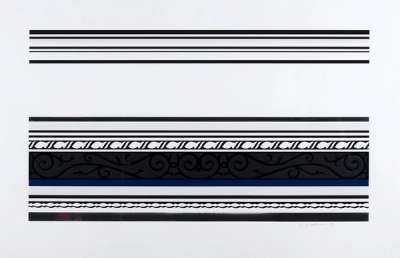
Entablature VI

Entablature VI
Signed Print
Roy Lichtenstein
£4,300-£6,500Value Indicator
$9,000-$13,500 Value Indicator
$8,000-$12,000 Value Indicator
¥40,000-¥60,000 Value Indicator
€5,000-€8,000 Value Indicator
$45,000-$70,000 Value Indicator
¥830,000-¥1,250,000 Value Indicator
$5,500-$8,500 Value Indicator
AAGR (5 years) This estimate blends recent public auction records with our own private sale data and network demand.
There aren't enough data points on this work for a comprehensive result. Please speak to a specialist by making an enquiry.
Medium: Planographic print
Edition size: 30
Year: 1976
Size: H 59cm x W 97cm
Signed: Yes
Format: Signed Print
Track this artwork in realtime
Watch artwork, manage valuations, track your portfolio and return against your collection
Track auction value trend
Auction Results
| Auction Date | Auction House | Location | Hammer Price | Return to Seller | Buyer Paid |
|---|---|---|---|---|---|
| March 2023 | Sotheby's New York | United States | |||
| June 2014 | Doyle Auctioneers & Appraisers | United States | |||
| May 2008 | Bonhams San Francisco | United States |
Meaning & Analysis
Roy Lichtenstein’s highly innovative Entablature series of the 1970s combines complex screen printed and lithographed areas, embossed with glossy and matte metal foils. This limited and signed edition of 30 prints presents a richly textured illusionistic play on 20th century American architecture.
Roy Lichtenstein first began examining the architectural facades of New York City in 1971. He took special interest in the horizontal structures that were placed atop columns, commonly referred to as entablatures. Over the course of 5 years, the artist produced two series of paintings centered around this ornamental feature. His series of Entablature prints were completed in 1976 and consist of eleven works on off-white Rives wove paper.
The series represents distinctly industrialised architectural imitations, built in abundance all over America in the early 20th century. Each print isolates particular architectural motifs encountered around Lower Manhattan. The artist considers the features as coded symbols of imperial power, imprinted on the facades of the very buildings people call their homes and workplaces.
Typically associated with comic book style portrayals of commercial culture, the Entablature series illustrates Lichtenstein’s skilful appropriation of more monumental elements of design.
Once again, the artist traces the effects of mass production and replication, only on a larger cultural scale this time. Additionally, Lichtenstein’s Entablatures spotlight historical conventions governing architectural and art historical creation, like the eminence of the Classical order and the doctrine of Minimalism.
Roy Lichtenstein, born in New York, 1923, is a seminal figure in the Pop Art movement, renowned for his comic book and advertisement-inspired artworks. His transformative journey from classical painter to Pop Art pioneer began with his iconic piece, Look Mickey, marking the fusion of painting with pop culture. Lichtenstein’s works, including Whaam!, Drowning Girl, and Crying Girl, blend parody and satire, challenging the boundaries between popular culture and ‘high art’. With over 5,000 pieces to his name, Lichtenstein’s enduring influence resonates in contemporary art, his works celebrated in prestigious institutions worldwide.
